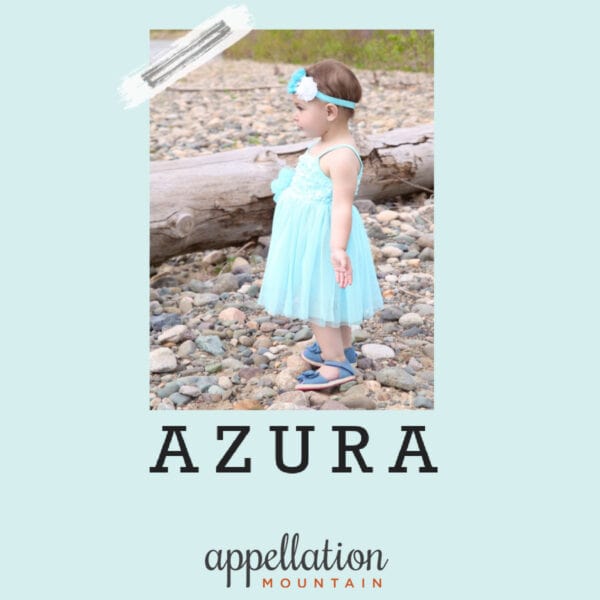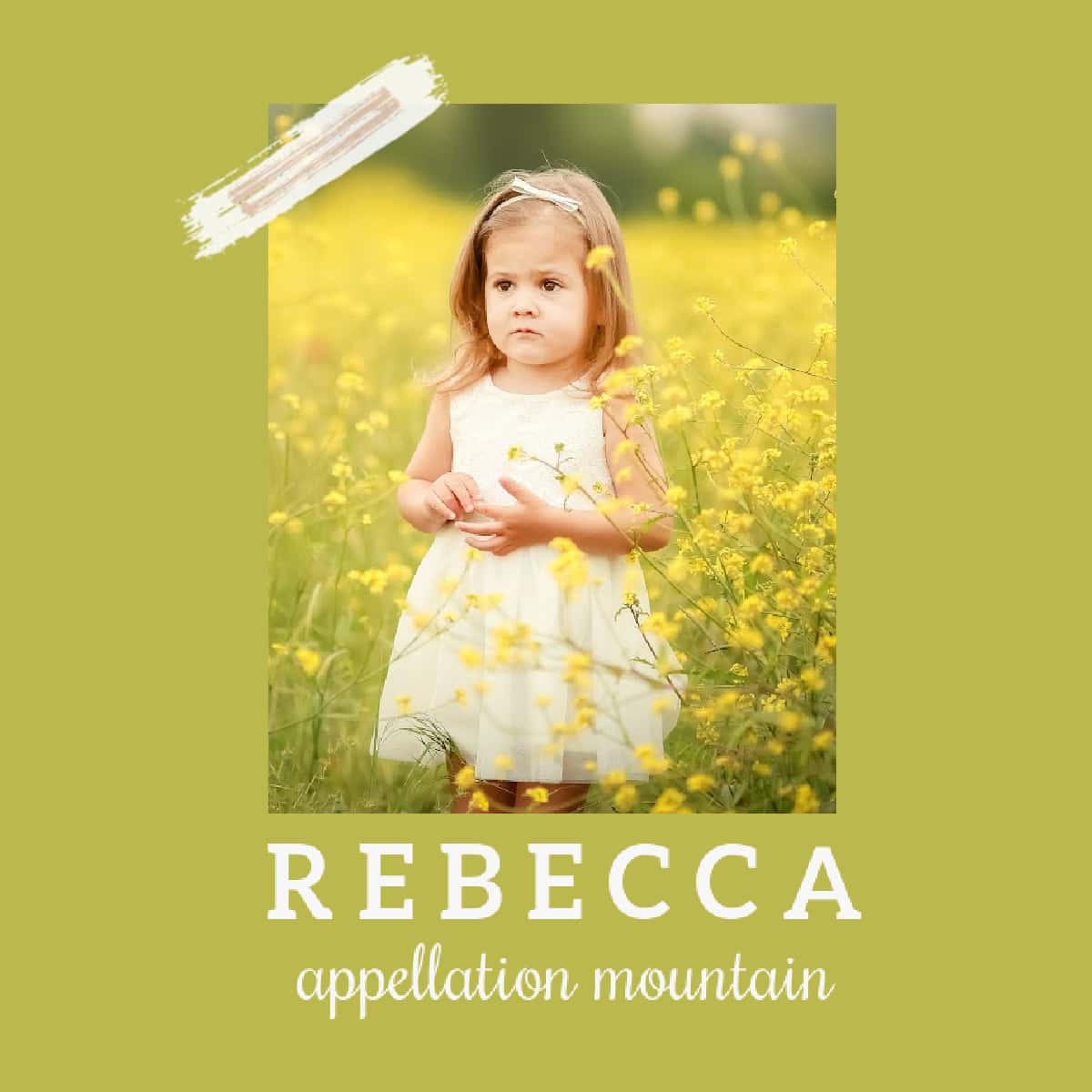
Thanks to Emmy Jo and Kate for suggesting our Baby Name of the Day, and Clio for suggesting we revisit it!
Agnes: Chart Topper
Believe it or not, in sixteenth century England, you were almost sure to meet an Agnes. Only Elizabeth and Joan consistently ranked higher.
Variants abounded, like Annis and Agneta, and even the Spanish Ines surfaced in the same century.
The name derives from the Greek hagnos, or holy or chaste.
The first famous Agnes explains the many that followed. A virgin-martyr, she died under the Diocletian persecutions in Rome in the early 300s.
Her story goes like this: born into a wealthy family and courted by many eligible bachelors, she chose instead to devote her life to prayer. A rejected suitor reported her to the authorities. Grisly and horrific punishments followed, along with miraculous escapes – though she eventually died at the hands of an army officer in charge of her execution.
The stories remained popular over the centuries, and the saint was held up as a worthy role model. A folk tradition developed, too. Because she’s the patron saint of young girls, custom holds that praying to her on the eve of her saint’s day would help them discover their husbands. Or, as John Keats wrote, “Bonny Agnes, let me see, The lad who is to marry me.”
Agnes: Medieval Notables
No surprise, then, that plenty of famous women followed, including:
- A duke’s daughter, born to the House of Poitiers, who later married the Holy Roman Emperor and became Empress. The Empress’ mother also wore the name, and she had at least two granddaughters named in her honor.
- King Louis VII of France gave this name to a daughter in the 1180s. She married the Byzantine Emperor, taking the name Anna.
- A duke’s daughter became Queen of France through her 1196 marriage to King Philip II of France. Unfortunately, Philip was already married.
Dozens more women appear in the historical record, including nobles. Three more saints from the Middle Ages also answer to the name.
Agnes: Lamb
In plenty of artistic renderings, Agnes has a little lamb.
That’s because agnus means lamb in Latin. Think of Agnus Dei – lamb of God.
Between the popular saint and the Latin phrase, this name felt quite Catholic back in the day. During the Reformation, Protestant parents rejected it in favor of newer names. It would be centuries before the name regained popularity.
Agnes: Keats
Remember the John Keats poem mentioned earlier? He told the story of Madeline, a young woman dreaming of her beloved. There’s a Romeo and Juliet-esque undercurrent to the tale.
Other medieval names were revived in the nineteenth century, so this one fit right in. By the nineteenth century, it ranked in the US Top 40. It remained in the Top 100 through the 1920s.
Agnes: Famous
There’s also:
- A nurse romanced by Ernest Hemingway; she later served as the model for several characters.
- A silent film star who appeared opposite Rudolph Valentino in The Sheik, and another actress known as Bewitched’s meddlesome mother-in-law Endora.
- Mother Teresa was born Anjezë Gonxhe Bojaxhiu.
The name has hovered in style limbo for ages. Just 189 girls were given the name in 2015 – but that’s up from a mere 59 a decade earlier. With names like Alice on the rise, and the possibility of Aggie succeeding Abby and Maggie, this name feels ready for revival.
After all, Despicable Me named the three sisters Margot, Edith, and Agnes. Margot is back and Edith shows signs of climbing. Can their sister be far behind?
Do you think Agnes feels fresh and ready for revival?
This post was originally published on February 11, 2009. It was substantially revised and reposted on August 15, 2016.




I love Agnes! And so many of the other names mentioned in the comments are favorites of mine too – Agatha, Edith, Maud, Mildred. I wouldn’t personally ever use Agatha because it was the name of my dog when I was growing up, and I’m not a fan of Aggie (that’s what we called our dog). I’d love to meet girls with any of these names.
I really like Agnes and was just talking about the name Agnes and Aggie with my daughters (ages 12 and 8) this weekend. My eldest misheard Aggie as Haggie and was put off. Worse still my 8 year old thought the name in question was Agony!
There’s nothing wrong with giving your kid an ‘old-person ‘ name. SOme people LOVE them & others don’t. Personally, I couldn’t care about it being geriatric- I just dislike the sound. It’s so harsh and make me feel awkward when I say it or here.
Thanks for making Agnes a name of the day Apellation Mountain. I am very much a fan of hers, obviously – given that I requested her! I can see why others would think she sounds old-ladyish, she does! But I love that old fashioned musty vibe. That, and the fact she sounds very proper, almost regal and yet quite short, snappy and to the point too. The potential nickname Aggy does put me off her a bit, as it does Agatha, but I remain undeterred: Agnes rocks!
I really like Agnes. And Agatha, for that matter. I am pretty sure my husband would dismiss them both as too old fashioned, since he’s a fan of Mackenzie, but I am glad to see that some other people out there in the Onomasphere like these two. Our last name starts with S though, so Agatha edges it out.
I have really mixed opinions on “old lady” names– I like these two, and I do like Edith as well. Frances could get by me as a middle name, but Maud is right out, as are Millicent, Mildred, and Gertie. (On the other hand, Gertie seems like the kind of name that might grow on me, and it’s a family name too. I won’t know unless/until I get pregnant. I’ve been known to start out hating a name and then to end up loving and using it. LOL)